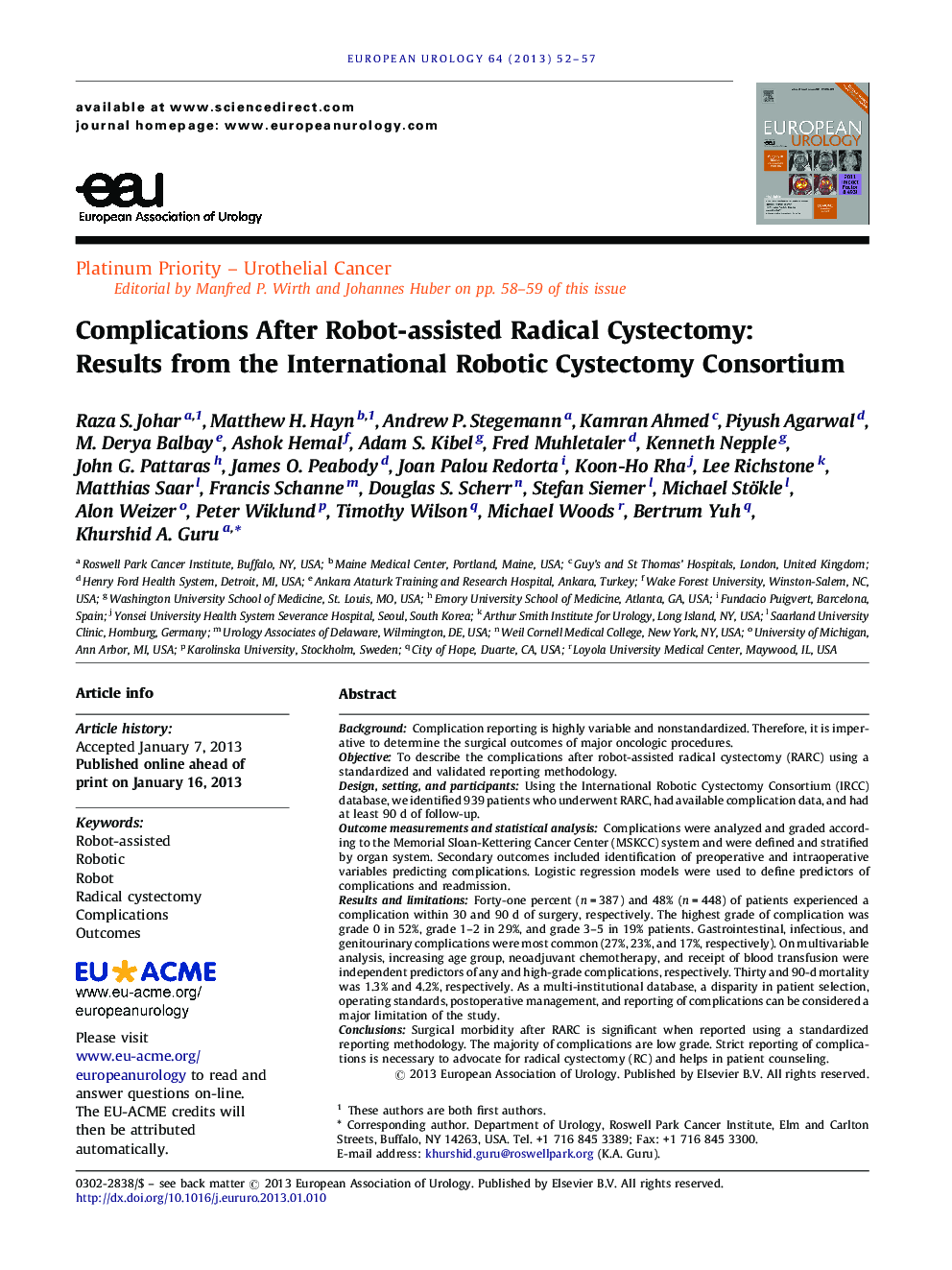| Article ID | Journal | Published Year | Pages | File Type |
|---|---|---|---|---|
| 3923807 | European Urology | 2013 | 6 Pages |
BackgroundComplication reporting is highly variable and nonstandardized. Therefore, it is imperative to determine the surgical outcomes of major oncologic procedures.ObjectiveTo describe the complications after robot-assisted radical cystectomy (RARC) using a standardized and validated reporting methodology.Design, setting, and participantsUsing the International Robotic Cystectomy Consortium (IRCC) database, we identified 939 patients who underwent RARC, had available complication data, and had at least 90 d of follow-up.Outcome measurements and statistical analysisComplications were analyzed and graded according to the Memorial Sloan-Kettering Cancer Center (MSKCC) system and were defined and stratified by organ system. Secondary outcomes included identification of preoperative and intraoperative variables predicting complications. Logistic regression models were used to define predictors of complications and readmission.Results and limitationsForty-one percent (n = 387) and 48% (n = 448) of patients experienced a complication within 30 and 90 d of surgery, respectively. The highest grade of complication was grade 0 in 52%, grade 1–2 in 29%, and grade 3–5 in 19% patients. Gastrointestinal, infectious, and genitourinary complications were most common (27%, 23%, and 17%, respectively). On multivariable analysis, increasing age group, neoadjuvant chemotherapy, and receipt of blood transfusion were independent predictors of any and high-grade complications, respectively. Thirty and 90-d mortality was 1.3% and 4.2%, respectively. As a multi-institutional database, a disparity in patient selection, operating standards, postoperative management, and reporting of complications can be considered a major limitation of the study.ConclusionsSurgical morbidity after RARC is significant when reported using a standardized reporting methodology. The majority of complications are low grade. Strict reporting of complications is necessary to advocate for radical cystectomy (RC) and helps in patient counseling.
